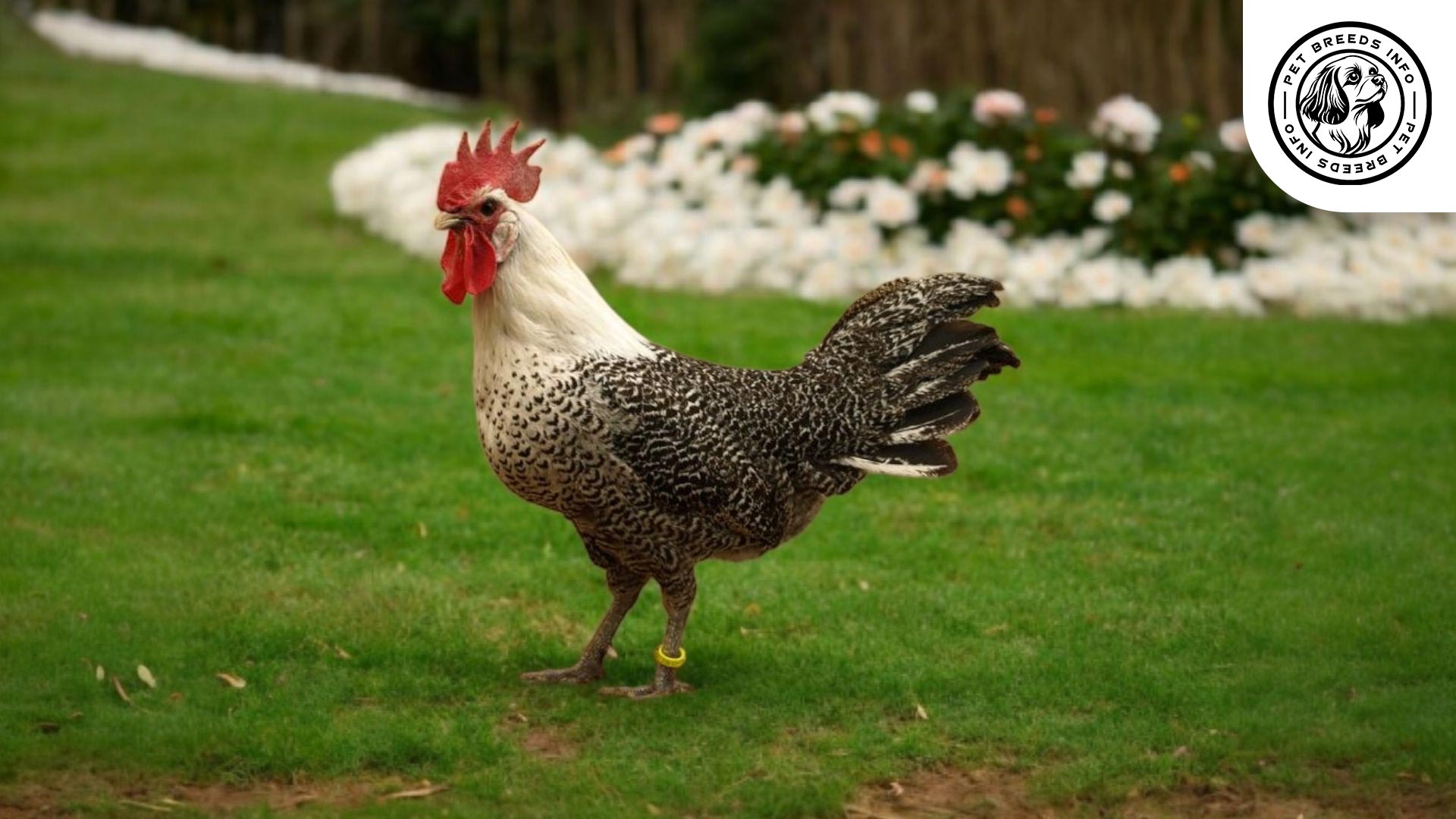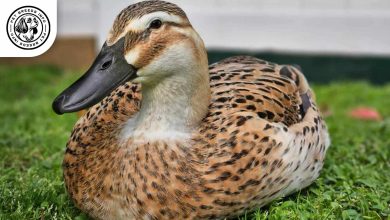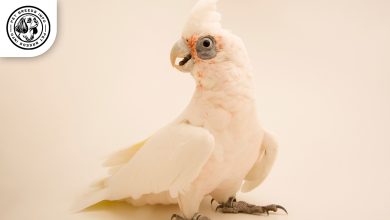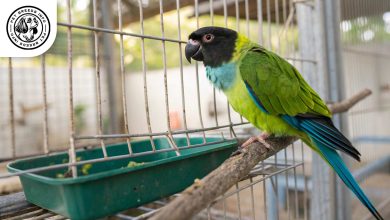Campine Chicken Breed: Personality, Lifespan, Food & Care
General Introduction of the Breed
The Campine Chicken, known as “Campinois” in French, is a rare and elegant breed originating from Belgium. It is named after the Campine region, where it was developed. Historically, Campine Chickens were bred for their excellent egg-laying abilities and hardy nature, making them popular among European poultry keepers in the 19th century.
Table of Contents
| Common Name | Campine Chicken |
| Scientific Name | Gallus gallus domesticus |
| Origin | Belgium (Campine region) |
| Size | Small to medium; Roosters ~6 lbs, Hens ~4 lbs |
| Lifespan | 5–8 years |
| Colors | Golden (gold with black barring), Silver (white with black barring) |
| Talking Ability | Low—limited to standard chicken vocalizations |
| Noise Level | Moderate—can be startled easily and vocal when alert |
| Social Behavior | Active, curious, sometimes dominant in flocks |
Physical Characteristics
Campine Chickens are small to medium-sized birds with a sleek and upright posture. Roosters typically weigh around 6 pounds (2.7 kg), while hens weigh about 4 pounds (1.8 kg). They have a single comb that stands tall and straight.
The breed primarily comes in two color variations: Golden Campine (rich golden feathers with black barring) and Silver Campine (white feathers with black barring). Their eyes are reddish-bay, and their beak is horn-colored. The legs are slate-blue or gray, and they do not have feathering on their legs.
Their tail is well-proportioned, with slightly arched feathers giving them an elegant look. One of the most distinctive features of the Campine is its lack of sexual dimorphism, meaning males and females look very similar.
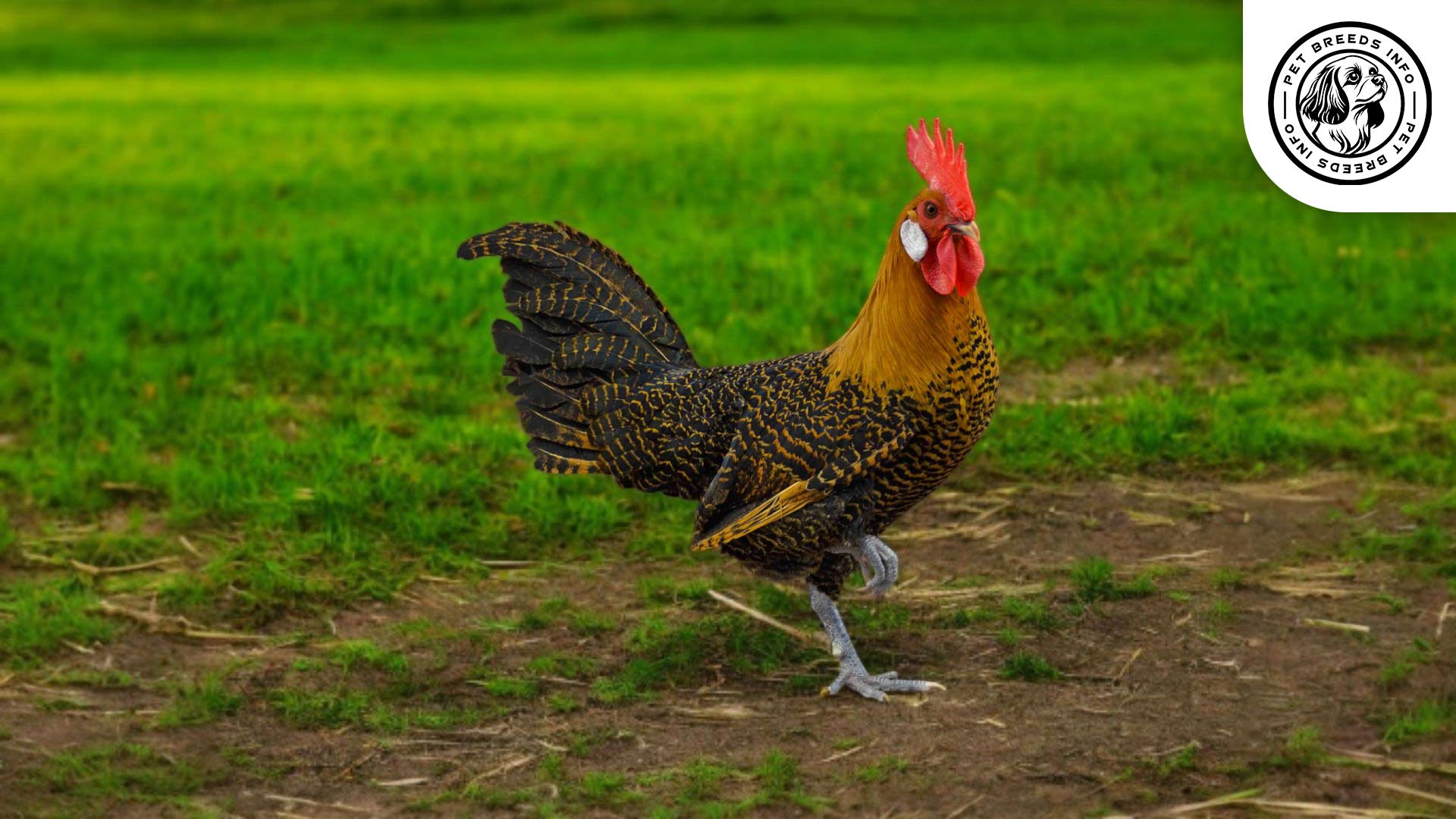
Personality and Temperament
Campine Chickens are known for their intelligence and curiosity. They are very active birds that love to forage and explore their surroundings. This breed is relatively independent but still enjoys human interaction, making them a great choice for backyard flocks.
They can be flighty and easily startled, so they do best with experienced poultry keepers. While they can adapt to confined spaces, they thrive when given plenty of room to roam. Campines tend to be friendly but are not the most affectionate breed. They get along well with other chickens but can sometimes be assertive in a flock.
Care and Maintenance Requirements
Campines have high energy levels and require a spacious environment to roam. They are excellent for free-range conditions, as they enjoy foraging for insects and greens.
They have relatively low maintenance grooming needs since they do not have feathered legs or excessive fluff. Regular health checks for parasites, trimming of overgrown nails when necessary, and ensuring clean bedding are key to keeping them healthy.
Read More: Lakenvelder Chicken
Campines are hardy birds but are more tolerant of warmer climates than cold. In colder regions, proper shelter and protection from harsh weather are essential to prevent frostbite on their comb.
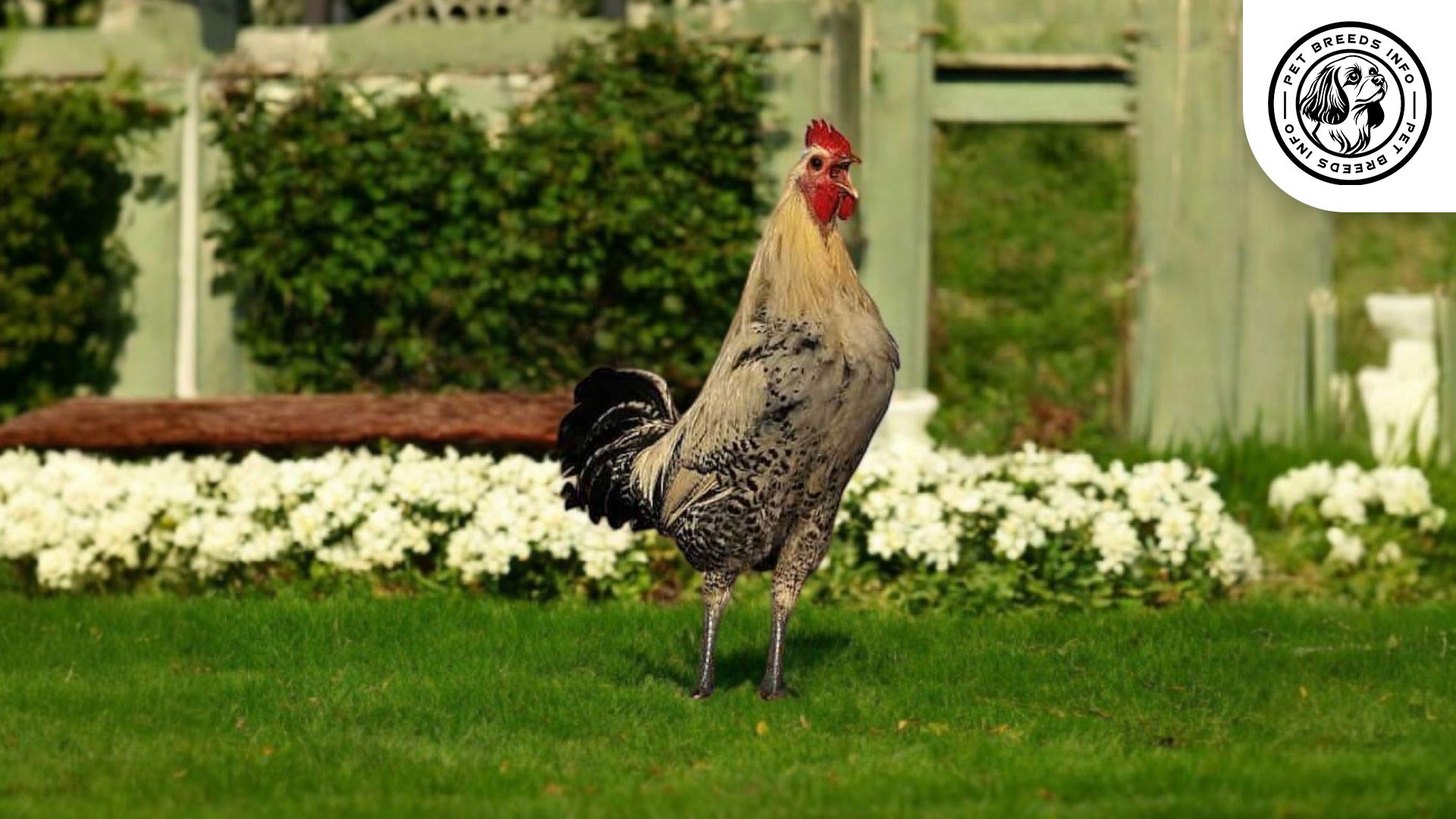
Diet and Nutrition
Campine Chickens thrive on a balanced diet consisting of high-quality poultry feed, fresh vegetables, grains, and occasional protein sources like mealworms or insects. Layers should be provided with calcium supplements, such as crushed oyster shells, to support strong eggshell production.
Avoid feeding them moldy or spoiled food, chocolate, caffeine, onions, and excessive salty foods, as these can be harmful to their health. Fresh water should always be available.
Health and Common Medical Issues
Campines are generally hardy birds but, like all chickens, they are susceptible to common poultry diseases such as Marek’s disease, respiratory infections, and mites or lice infestations. Vaccinations and regular parasite control are important for maintaining their health.
The breed has an average lifespan of 5 to 8 years when properly cared for. Regular veterinary checkups and proper nutrition can help prevent common health problems.
Read More: Indian Runner Duck
Training and Behavior Management
Campines are alert and intelligent, but they can also be skittish. With gentle handling and consistent interaction, they can become more comfortable around humans.
They respond well to routine feeding schedules and positive reinforcement, such as treats, to encourage desired behaviors like returning to the coop at night. Early socialization ensures they are well-behaved within a larger flock.
Interaction with Other Animals and Humans
Campine Chickens can coexist peacefully with other chickens but may be somewhat dominant in mixed flocks. They do well in free-range settings where they can explore independently.
While they are not extremely affectionate, they do enjoy human company when treated gently. They are not the best breed for small children due to their shy and flighty nature.
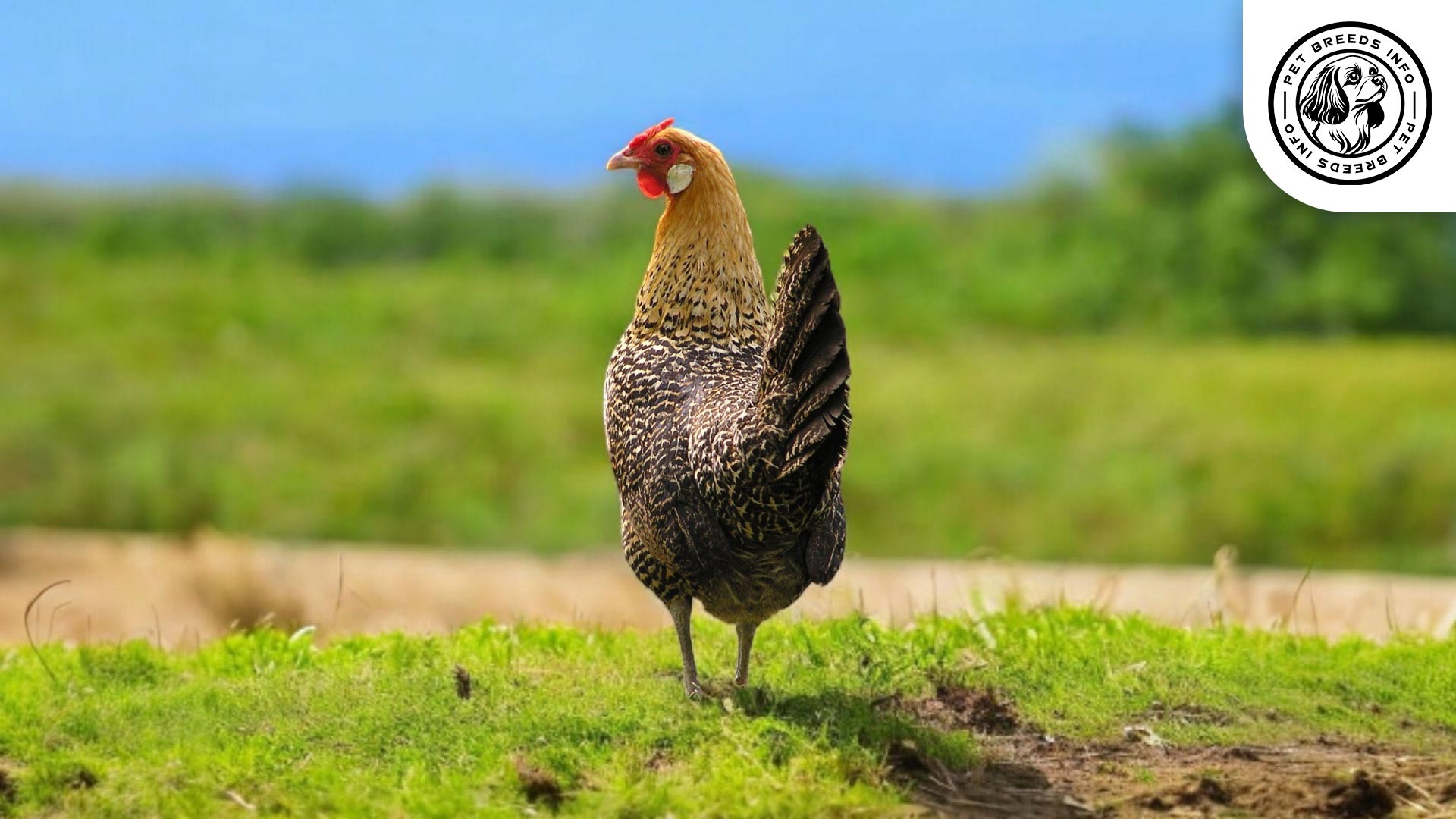
Price and Availability
The cost of Campine Chicks varies based on quality and breeder reputation. On average, they range from $5 to $15 per chick. Adult birds can cost more, especially if they come from show-quality lines.
Since Campines are considered a rare breed, it is best to source them from reputable breeders, hatcheries specializing in heritage breeds, or poultry associations to ensure you are getting healthy and genetically sound birds.
Conclusion and Final Thoughts
The Campine Chicken is an intelligent, active, and attractive breed best suited for experienced poultry keepers who can provide ample space for free-ranging. While they are excellent egg layers and contribute significantly to a backyard flock, their independent and flighty nature may not make them the best choice for those seeking a highly affectionate poultry breed.
Read More: Houdan Chicken
Potential owners should consider their space requirements, cold sensitivity, and need for regular interaction before choosing Campines. For those with the right setup, they make a fantastic and productive addition to a flock.
FAQ
Where did the Campine Chicken originate?
The Campine Chicken originated in Belgium, specifically the Campine region.
What is the Campine Chicken primarily used for?
It is valued for its egg-laying ability and is also appreciated for its ornamental beauty.
Are Campine Chickens good with children?
Not ideal for small children due to their flighty and skittish nature.
Can they be kept in confined spaces?
They can adapt but prefer spacious, free-range environments.
What do Campine Chickens eat?
A balanced diet of poultry feed, vegetables, grains, insects, and calcium supplements.
